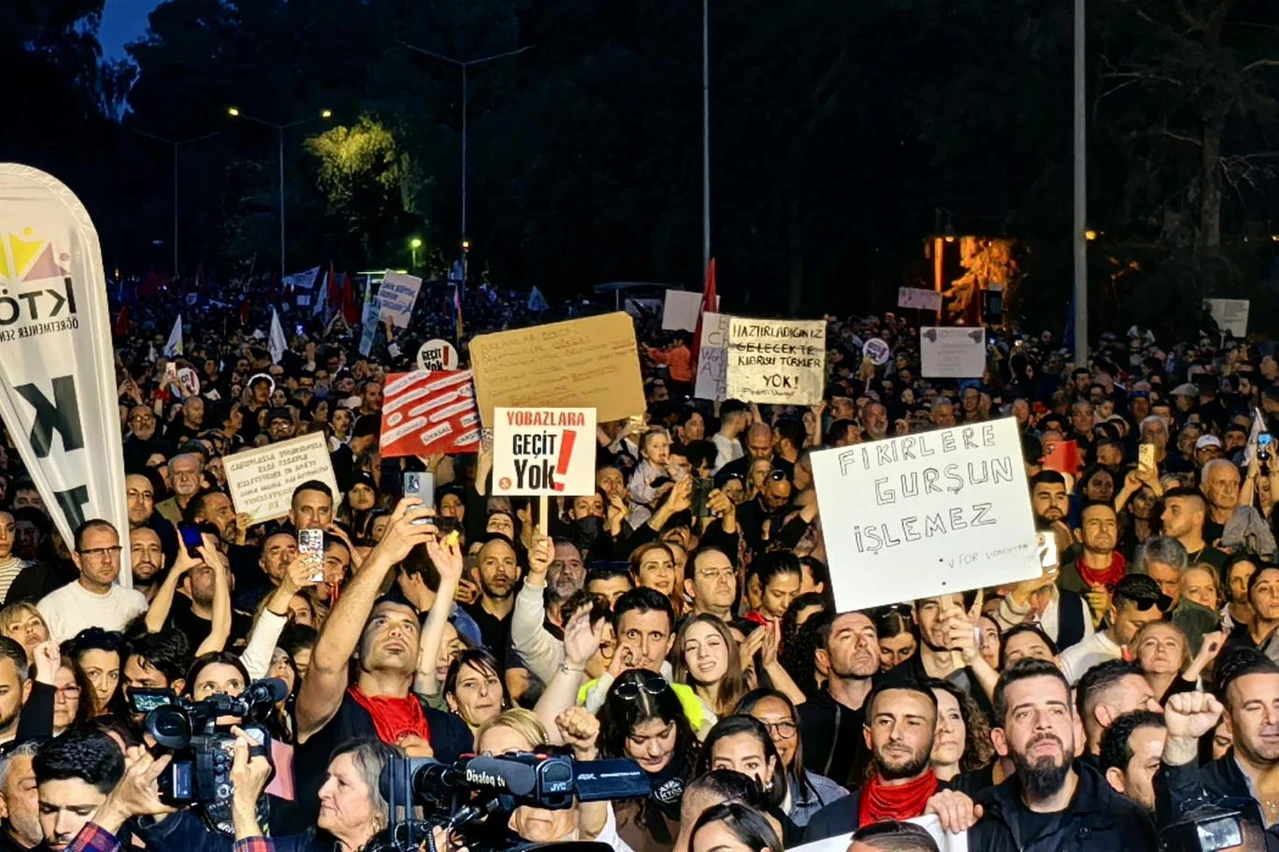Trump administration poised for new sanctions blitz on Iran, eyes oil exports
 U.S. President-elect Donald Trump takes in the crowd after speaking during a campaign rally at the Bojangles Coliseum in Charlotte, North Carolina, on July 24, 2024. (AFP Photo)
U.S. President-elect Donald Trump takes in the crowd after speaking during a campaign rally at the Bojangles Coliseum in Charlotte, North Carolina, on July 24, 2024. (AFP Photo)
President-elect Donald Trump is reportedly planning a swift return to a hardline approach against Iran, with fresh sanctions targeting Tehran’s critical oil sector. According to insiders cited by The Wall Street Journal, the incoming administration is set to “drastically increase sanctions” on Iran, aiming to cripple the nation’s economic resources that fund its regional alliances and nuclear activities.
This strategy echoes Trump’s earlier tenure, where he withdrew from the 2015 nuclear agreement known as the Joint Comprehensive Plan of Action (JCPOA). The move unraveled the deal that had eased sanctions on Iran in exchange for limits on its nuclear program.
Following the withdrawal, Trump imposed a stringent “maximum pressure” campaign, which included economic restrictions and the high-profile killing of General Qassem Soleimani, a key figure in Iran’s Quds Force, who played a major role in combating extremist groups in the Middle East.
Sources familiar with the administration’s plans indicate that Trump’s team is prepared to swiftly cut off Iran’s oil revenue streams. This effort may include targeting foreign ports and companies engaged in the trade of Iranian oil.
“You’re going to see sanctions coming back in full force, with a stronger emphasis on isolating Iran diplomatically and economically,” a former senior White House official told the WSJ. The goal, they noted, is to exploit what they perceive as Iran’s current economic vulnerabilities.
Although the precise methods of expanding these sanctions have not been fully disclosed, the move aligns with Trump’s long-standing belief that Iran’s regional influence can be curbed through economic isolation.
The renewed push comes amid heightened tensions between Israel and Iran. Israel has launched several strikes targeting Iranian assets in Syria and even inside Iran itself, including a notable attack on October 26 aimed at Tehran’s missile capabilities. Earlier this year, Israel struck the Iranian consulate in Damascus on April 1, leading to the death of several high-ranking Iranian military figures, including those from the Revolutionary Guard Corps (IRGC). Iran’s Supreme Leader Ayatollah Ali Khamenei has vowed a severe response to these attacks.
Brian Hook, who previously led the Trump administration’s sanctions campaign against Iran, is rumored to be returning to a key role in the national security team. Hook emphasized in recent remarks to CNN that Trump is committed to “isolating Iran diplomatically and weakening their economy” to diminish its support for groups in the region, such as Hezbollah, Hamas, and other factions opposed to Israel’s policies.
Former U.S. energy official Robert McNally suggested that one of Trump’s strategies could involve pressuring China, a major buyer of Iranian oil, by imposing restrictions on Chinese ports handling these shipments. Meanwhile, Helima Croft, a senior analyst at RBC Capital Markets, noted that Trump’s advisors are supportive of potential Israeli military actions against Iran’s nuclear sites, a stance that aligns with Israeli Prime Minister Benjamin Netanyahu’s long-held position.
Despite the aggressive rhetoric, there may still be room for diplomacy. Mick Mulroy, a former Pentagon official under Trump, hinted that the new administration might consider engaging in talks with Iran — but only on terms set by Trump himself, diverging from previous agreements.
In response to Trump’s election, Iranian President Masoud Pezeshkian dismissed the significance of the American leadership change, stating, “It does not matter to us who won the U.S. election. Our system relies on internal strength.”



